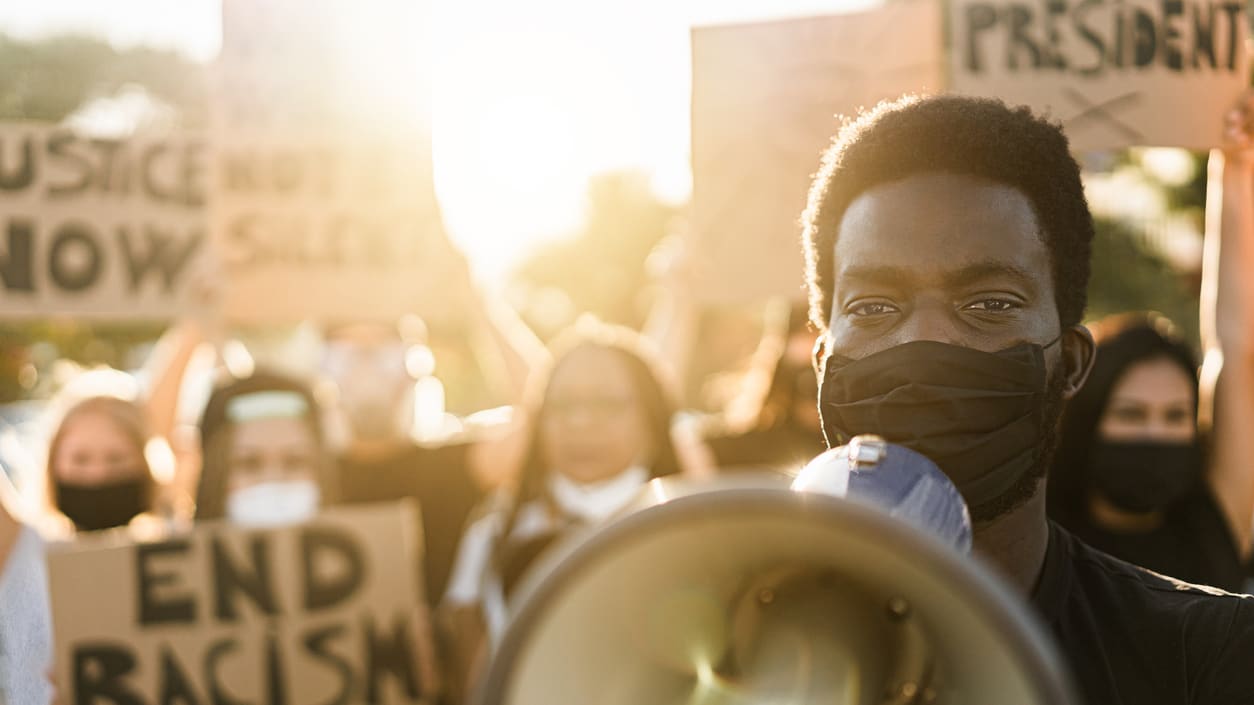In the wake of recent acts of violence against people of color—including George Floyd, Breonna Taylor and Tyre Nichols—many companies released public statements expressing support for racial equality and committing to improving diversity, equity and inclusion (DE&I) in their workplaces.
While the statements were often meant to condemn the violence and offer support for the victims, their families and the larger community, their actual effect was often negative.
"Research has repeatedly demonstrated there is little to no benefit for an organization taking a political stance on social movements and social injustices," said Lauran Star, an author and DE&I psychologist based in Boston. "In fact, data supports the idea that doing so can hurt an organization if done with the wrong focus."
Organizations that took a political stance on social injustices experienced a significant decrease in employees' quality of work and productivity, according to a 2020 study by Columbia Business School. The report also revealed that these statements harmed work relationships, leading to more conflict and poor business decisions.
Instead, managers should start by trying to understand their employees' social-political viewpoints so they can avoid making a decision that could demotivate their workforce, the Columbia researchers recommended.
Star noted that actions often speak louder when it comes to addressing social injustices.
"If the organization has no connection or actional changes or lack the follow-up [to public statements], the employees and consumer will lose trust in the organization," she said. "I think I can say it for consumers and employees: The time for lip service around social injustices, racism and equity is over."
Consider an Internal Statement
Nika White, a leadership consultant and DE&I expert in Greenville, S.C., said that many employees of color experience stress from continuously hearing about racial trauma when social tragedies occur.
"They may not know how to deal with the media frenzy, and the workplace could either be another stressor or a safe haven," she said. "The latter is what every organization should strive for."
This is the time for organizations to check on their employees, White said. They may need acceptance, empathy and understanding of the trauma they feel. But if leadership hasn't laid the groundwork to create a safe environment, those conversations could leave employees feeling singled out and burdened.
White, the author of Inclusion Uncomplicated: A Transformative Guide to Simplify DEI (Forbes Books, 2023), suggested that employers first release internal statements explaining how their leadership feels about these tragedies and addressing ways that the organization's equity efforts create inclusion and belonging for marginalized associates.
"You should not release a statement without talking about what you have done, are currently doing and will do to address injustices," White said. "Most would assume an organization is upset and doesn't tolerate this type of behavior, but the question to answer at this time is what is leadership going to do to meaningfully support colleagues."
5 Tips for Having Difficult Discussions
Star, the author of Evidence Based Inclusion; It's Time to Focus on the Right Needle (LS Publishing, 2022), also believes it is more important for companies to have workplace conversations about social injustices than to release public statements.
She offered tips for conducting these conversations:
Create a safe space. Have these conversations where employees feel safe to share without judgment; keep conversations confidential; and ensure employees, especially workers of color, feel heard.
Be informed. Leaders should know where their own biases lie and build cultural intelligence.
Recognize worker trauma. Understand that social injustices are traumatic. Keep this in mind and exercise empathy when leading and listening to these discussions.
Ask questions. Regularly asking how employees are doing or if they need to talk about social issues that might distract them from work could be an effective way to build trust.
Know that you will not fix the problem. The goal of these conversations is to talk and share perspectives, not solve the social injustice.
White recommended that employers discuss DE&I issues as early as the interview process to build trust with employees and show a commitment to DE&I. Doing so will lay the groundwork for the type of relationship employees can expect to have and reveal how supportive the culture is for marginalized employees.
"If you've ever felt a lack of equity, inclusion or belonging, you may have difficulty talking about those experiences because of the pain and trauma associated with those occurrences," White said. "No one wants to have a difficult conversation with someone they don't trust."
An organization run by AI is not a futuristic concept. Such technology is already a part of many workplaces and will continue to shape the labor market and HR. Here's how employers and employees can successfully manage generative AI and other AI-powered systems.




